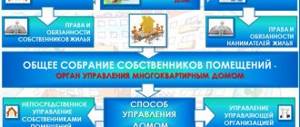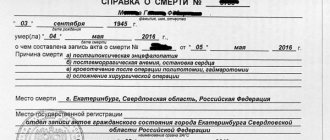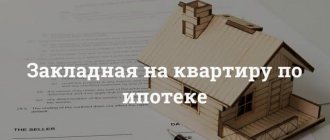What is written in the rules for issuing subsidies
The subsidy is allocated to LLCs and individual entrepreneurs with certain OKVED codes, which are also included in the register of small and medium-sized businesses (for more details, see “A new subsidy for small businesses has been approved: who can receive it”).
Reference
You can find out which OKVED code is assigned to your organization or individual entrepreneur using an extract from the Unified State Register of Legal Entities or the Unified State Register of Individual Entrepreneurs, and you can also check whether an LLC or individual entrepreneur is included in the register of small and medium-sized businesses using the “Kontur.Focus” service.
Connect to the service "Contour.Focus"
The procedure for issuing and using “preventive” subsidies is regulated by Russian Government Decree No. 976 dated July 2, 2020. Already from its name it follows that money is given to businesses for a reason, but for specific purposes. Namely: “to carry out measures to prevent the new coronavirus infection.”
The resolution approves the rules for issuing subsidies. Paragraph 5 of the Rules says: money is allocated for initial prevention costs (15 thousand rubles) and current ones (6,500 rubles for each employee). Entrepreneurs without employees receive money only for initial expenses.
However, the Resolution does not contain a specific list of preventive measures on which the money received should be spent, nor provisions on what will happen if the funds are spent on other purposes. The only clause on liability that is in the Rules concerns the recipient’s distortion of data in the reporting submitted to the Pension Fund of Russia - on the basis of this information the amount of the subsidy is calculated. In particular, information from the SZV-M form is used.
Fill out, check and submit the SZV-M for free via the Internet
Clause 12 of the Rules states that in case of distortion of reporting, the money received must be returned to the budget. In addition, it is worth paying attention to clause 13, which gives the Federal Treasury the right to monitor compliance with the purposes of providing subsidies.
Let's sum up the intermediate results. The main document regulating the issuance of a subsidy for disinfection specifies its intended purpose and lays down a mechanism for monitoring its compliance. However, it does not contain any provisions on penalties for misuse of money.
Where to start designing?
To apply for a subsidy to compensate for the costs of paying housing and communal services, you need to submit an application to the authorized government agency responsible for issuing social benefits and allowances at your place of residence. As a rule, this is done by the Department of Social Protection of the Population.
The necessary documents for reimbursement of rent expenses can be submitted:
- through a representative acting under a power of attorney;
- personally;
- by mail;
- in electronic form through the MFC or the Unified Government Services Portal.
First you need to fill out a standard application form, in which you need to indicate:
- name of the institution providing the subsidy registration service;
- the applicant’s passport details, including full name and contact information;
- details of passports and birth certificates of all family members registered at this address;
- residential address;
- bank account number for transferring monetary compensation and details of the bank in which it is opened.
Before applying for a social security subsidy for an apartment, the family must calculate their income and receive low-income status if their income is very low. Then, with all the documents, visit the district social protection department (housing subsidy department), which is responsible for calculating assistance. In the capital, you can also contact the City Center. The MFC also handles the registration. In villages, there are on-site receptions of employees of the social protection department according to a certain schedule.
An employee of the department where the subsidy for an apartment is issued calculates its size based on the following parameters:
- The maximum share of utility costs is taken into account. Each region has its own standard. On average, it is equal to 10–25% of the total family income.
- The indicator taken into account is the cost of payment per 1 square meter. This indicator is also regional.
- Subsidies are allocated not for the entire living space, but for a certain norm per person: for one citizen - 33 meters, if there are more than three people in a family - 18 meters per resident.
The submitted application and documents for receiving a subsidy for an apartment are reviewed by social security employees within 10 days. The applicant receives a response (positive or refusal) by mail. In case of refusal, an official written document indicating the reasons will be drawn up.
If the answer is yes, a certain amount will be transferred to the citizen’s account every month, intended for repayment of utility services. If a citizen is unable to visit the bank to receive funds, assistance is given to him in cash through the postman. But, as a rule, subsidies are credited to the applicant’s savings book or plastic card.
What is considered misuse?
Obviously, before talking about responsibility for misuse of money, it is necessary to determine what specific needs the subsidy can be spent on. As already mentioned, the Resolution itself describes the goal as broadly as possible: “carrying out measures to prevent a new coronavirus infection.” This means that spending on any goods, work or services that are somehow related to prevention (disinfection of premises, purchase of protective equipment, testing, etc.) will be considered targeted within the framework of Resolution No. 976.
Important
Neither the Decree nor the Rules stipulate that the subsidy is allocated to cover costs already incurred. It turns out that the taxpayer cannot use budget money for other needs, even if he has previously spent similar amounts on preventive measures. Such spending of the subsidy may be considered inappropriate.
Misuse and taxes
The Tax Code contains a rule on the need to comply with the intended purpose of budget allocations. We are talking about the rules sub. 14 clause 1 art. 251 Tax Code of the Russian Federation. It says: earmarked funds used for other purposes lose their tax-exempt status and must be included in non-operating income. However, these provisions cannot be applied to a “preventive” subsidy.
The fact is that sub. 14 clause 1 art. 251 of the Tax Code of the Russian Federation contains its own closed list of targeted revenues to which this norm applies. And coronavirus subsidies are not named there. Moreover, for them, legislators introduced clause 1 of Art. 251 of the Tax Code of the Russian Federation, a separate paragraph numbered 60. And this paragraph does not contain any reservations about the intended use of money received from the budget and the consequences of violating it.
Thus, from the point of view of the Tax Code of the Russian Federation, taxpayers falling under sub-clause. 60 clause 1 art. 251 of the Tax Code of the Russian Federation, the subsidy for disinfection will not be subject to income tax (or a single tax under the simplified tax system) regardless of what purposes the money will actually be spent on. Moreover, the exemption will also apply in a situation where the money will not be spent in principle, but will remain in the taxpayer’s account.
Maintain tax and accounting records under the simplified tax system in an intuitive web service Try for free
Tip 1: What documents confirm low-income status?
You will need to draw up an application to recognize the family as low-income - this must be done in a specialist’s office. Perhaps the documents from the regular list will not be enough for you to assign your family low-income status - then you will be asked to provide the missing certificates. A family whose income is less than the subsistence level is considered low-income.
We recommend reading: Children's benefits in the Chernobyl zone in 2020
First of all, you will need documents confirming the identities of family members - passports, birth certificates. You definitely need a document that confirms the citizen’s registration at the place of residence or stay - this can be a certificate from the place of residence, an extract from the house register.
Is there a sanction in the Budget Code?
Since the subsidy is allocated from the budget, the rules of budget legislation may be applied to the relationship between its receipt and expenditure. Let's take a look at them.
The procedure for providing subsidies to recipients from the extra-budgetary sector (commercial organizations and individual entrepreneurs) is regulated by Article 78 of the Budget Code. This article contains a general provision that the rules on the basis of which a subsidy is allocated must contain a mandatory clause on control over the intended use of money. However, it does not establish specific liability for misuse of funds.
Such liability is not established in Article 306.4 of the Budget Code of the Russian Federation, which is entirely devoted to the misuse of any budget funds, incl. and received on the basis of decrees of the Government of the Russian Federation. True, paragraph 2 of this article establishes punishment in the form of unconditional recovery of money used for other purposes only in relation to targeted interbudgetary transfers. In this case, the money is allocated directly from the federal budget. Therefore, although the situation as a whole falls within the scope of paragraph 1 of Art. 306.4 of the Budget Code of the Russian Federation (i.e., recognized as misuse of budget funds), apply the rules of clause 2 of Art. 306.4 of the BC RF regarding liability will not work.
Keep records and submit all individual entrepreneur reports via the Internet
Is there any risk of administrative liability?
The next rule that can be applied to recipients of “preventive” subsidies is Article 15.14 of the Code of Administrative Offenses (CAO RF). It’s called: “Inappropriate use of budget funds.” And as we remember, the definition of misuse given in paragraph 1 of Art. 306.4 of the Budget Code of the Russian Federation, also covers subsidy recipients.
Article 15.14 of the Code of Administrative Offenses of the Russian Federation states: liability in the form of a fine and disqualification may occur for the fact that budget funds are allocated for purposes that do not correspond to those specified in the regulatory legal act on the basis of which they are allocated. It is obvious that spending a “preventive” subsidy for any other purpose is fully subject to this article of the Code of Administrative Offenses of the Russian Federation. This means that if an organization or individual entrepreneur spends the money received on something not related to the prevention of coronavirus, they will face an administrative fine: for individual entrepreneurs - from 20 to 50 thousand rubles; for organizations - from 5 to 25 percent of funds used for other purposes. Also, an individual entrepreneur or the head of a company may be disqualified for a period of one to three years.
note
If the amount of the subsidy spent for other purposes is 1.5 million rubles. and more, then criminal liability is possible. Article 285.1 of the Criminal Code of the Russian Federation provides for misuse a maximum penalty of imprisonment for a term of up to two years with possible deprivation of the right to hold certain positions or engage in certain activities for a term of up to three years.
Useful video
What documents are required to receive a subsidy are described in detail in this video:
The article describes typical situations. To solve your problem , write to our consultant or call for free:
+7 (499) 490-27-62 — Moscow — CALL
+7 — St. Petersburg — CALL
+8 ext.849 — Other regions — CALL
Not everyone, unfortunately, knows that in our country low-income citizens are entitled to support for solving housing problems in the form of housing subsidies. And even fewer people have any idea what steps need to be taken to get them.
Those citizens who have been recognized as low-income, that is, those whose income is below the designated minimum subsistence level, can count on financial assistance from the state. The housing code determines its value, which differs from region to region.
Summarize
A special mechanism for monitoring the spending of subsidies on disinfection has not been established, however, treasury and financial control authorities have the right to check the targeted nature of the relevant expenses (clause 13 of the Rules, clause 2.1 of Article 266.1 of the Budget Code of the Russian Federation). Relevant documents may also be requested from the subsidy recipients themselves (Article 267.1 of the Budget Code of the Russian Federation).
Spending budget money for purposes that are in no way related to the prevention of coronavirus may result in a fine and disqualification for the recipient (Article 15.14 of the Code of Administrative Offenses of the Russian Federation). And with significant amounts of subsidy - even criminal prosecution (Article 285.1 of the Criminal Code of the Russian Federation). However, there are no tax or “budgetary” consequences in this case.
Separately, it is worth noting that it is the spending of the subsidy for purposes that do not comply with Resolution No. 976 that is punished. This means that punishment cannot be applied to organizations and individual entrepreneurs, as well as their officials, if the amount received simply “settled” in a bank account and was not used at all .
Where to get a salary subsidy certificate
A certificate confirming income is obtained directly from the source of income. In most cases, a citizen’s source of income is an organization or entrepreneur who acts as an employer in relation to him. At the place of work, a citizen has no right to refuse to provide such a certificate. If a citizen works part-time in several jobs, with several employers, then such certificates are requested from all places of work.
Separately, we note that the income that is taken into account when receiving a subsidy can be pensions, unemployment benefits, and scholarships. Certificates about the amount of the latter, for example, can be obtained from the educational institution where the student studies.






